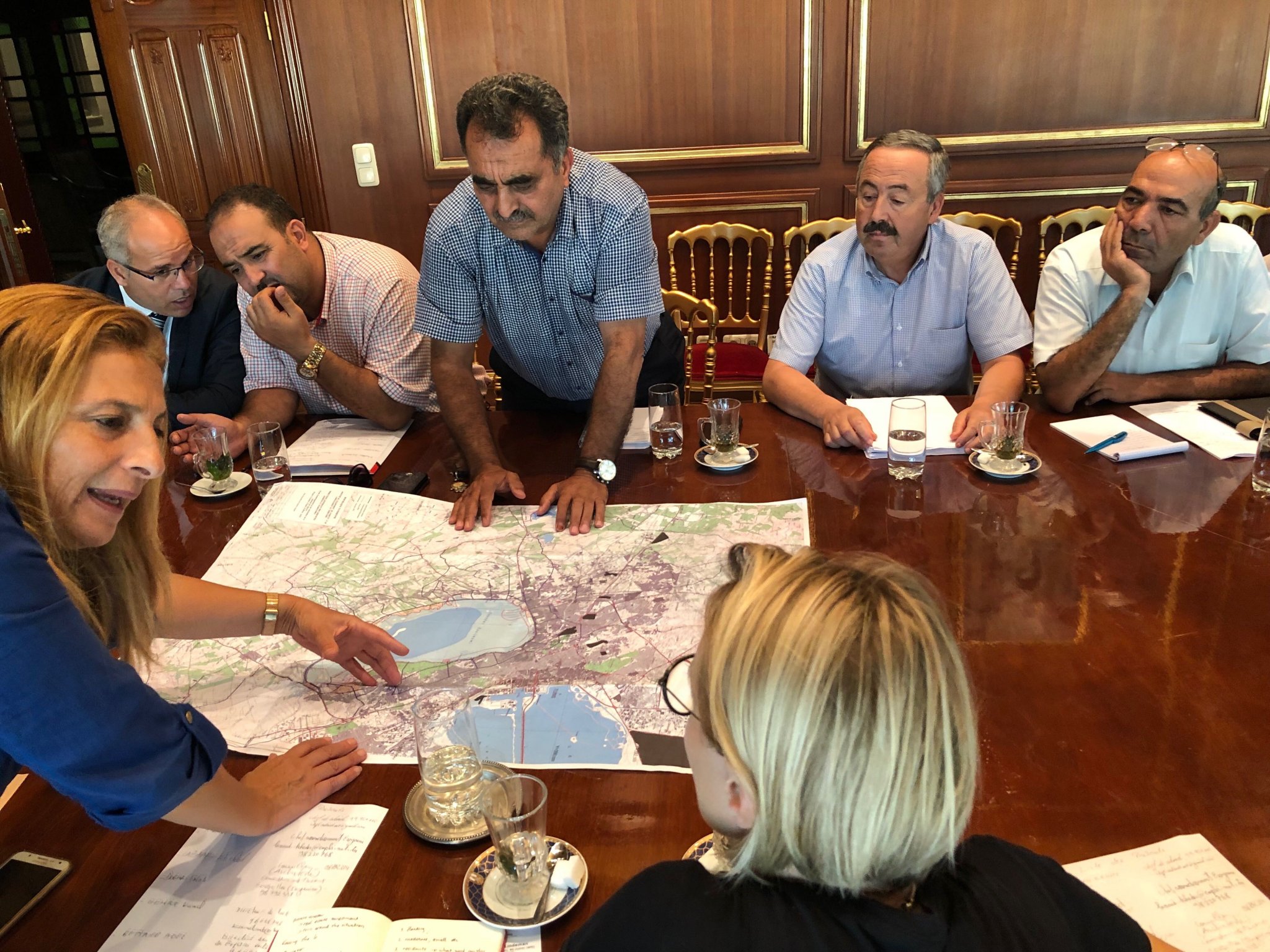The beauty of New Global, but also the challenge and the source of complexity, is that we are very different, we come from different backgrounds and traditions. But then, very surprisingly that actually is sort of what sticks and puts everything together.
Marleen Wierenga, Project Researcher
New Global is based on a holistic, systems thinking inspired philosophy. This explains our choice of working across disciplines, across research and practice, across Finland and emerging markets, and across societal levels from the grassroots to decision-makers. We believe that to create new solutions to global sustainability challenges, we need to learn to collaborate much better. In other words, we need to learn how to profoundly co-create in multi-stakeholder innovation processes.
Addressing wicked problems through learning
Creating sustainability innovations for people in deeply resource-constrained settings is challenging. It’s at the intersection of several wicked problems such as poverty, resource scarcity and sustainability. Our holistic, systems and design thinking inspired philosophy provides tools and approaches to address wicked problems. We believe in taking a learning approach, and embracing complexity and diversity. We want to share our experience of working in this way, and encourage others to do the same.
Our learning path is visualised and can be accessed through the link below.

Stakeholders coming together for the Sebkhet Sejoumi project
Leading co-creation
Co-creation was at the very heart of the project. We accepted that none of us could be the expert in all areas and therefore concentrated on creating an atmosphere that was encouraging and safe, and where everyone could bring their ideas and expertise.
Jarkko Levänen, Postdoctoral Researcher
With the New Global project we had the unique opportunity to explore and experiment with what could be the pathways from poverty to a sustainable future. We wanted to study what did not exist yet and create opportunities through experimental research. When exploring the unknown, the process cannot be managed by traditional project management tools and methods and hence we adopted the idea of leading from the emerging future (Scharmer & Kaufer, 2013).
We learned that co-creation means equally introducing new principles for framing the work, new ways of working on different levels, and new impact assessment.
Principles
Our work is organised around a set of related key ideas, for example, on the purpose and nature of our work, the roles, and the kind of people we need in our team:
Evolutionary
Purpose
We want to contribute to the transition to sustainable development and see that this transition includes and benefits low-resource communities.
Theory
of Change
We acknowledge that the transition needs to include a large number of organisations and types of knowledge. Nobody is fully in control.
The transition is likely to be the sum of several connected or unconnected events and activities. Together they create a transformation when a critical tipping point is reached.
Our
role
The transition is the focus. Therefore, we wanted to create a project that supports it, and cultivates an openended and networked ways of working. We are interested in what happens across a wide range of organisations and actors and our concern reaches beyond our own organisational boundaries. Most of our work focuses on creating environments that would enable others to take new courses of action, take a new perspective, or engage in new collaborations.
Our
people
Most of the people in our team are what we began to call “hybrid people”, as in that they have the capacity to take on multiple roles and are comfortable with switching between the roles of researcher, entrepreneur, teacher, advisor, etc.
Both roles and organisations become tools for the joint purpose of the transition to sustainable development.
Levels of acting
We have learned that taking on a co-creation approach means to introduce new ways of working on different levels. These levels of acting are, for example, the team, external stakeholders, organisation – in our case a University, and community. Following, some specific examples of how we have been working:
Stakeholder
Relations
Many stakeholders were involved in our work. Rather than attempting to develop a centralised way of managing these relationships, we accepted that each one of our team members nurtures their own networks, relations and projects, and then we trust that in our team meetings, especially the co-learning sessions, we are able to connect the dots across these networks when needed. This organic way of organising made it possible for us to maintain relations to a wide range of organisations.
Community
Collaboration
Much of our research focuses on developing ways in which to understand, include, empower and engage low-income populations in the co-creation of sustainability innovations and solutions.
Please check our research findings on co-creation to know more about both methods and new knowledge that we have developed.
Co-creation FindingsUniversity
as Actor
The New Global project has tested a model for how university activities such as interdisciplinary problembased education and intervention research can be combined with real world projects to enhance co-creation of impact. The starting point is having challenge owners and active stakeholders that see value in collaborating with a university.
Download the model:
Impact assessment
Assessing the impact of an open-ended and co-creative project is challenging. Many of the impacts are indirect and will most likely only materialise after the project has ended. We want to also share the framework created by Business Finland for assessing the impact of our work.
